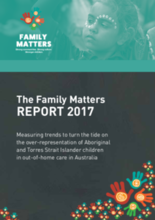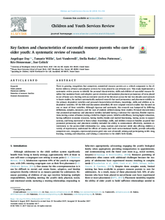Displaying 1451 - 1460 of 2221
This formative, exploratory study utilizes focus groups and in-depth interviews to understand foster youth perceptions of healthy and unhealthy dating relationships through a social learning theory lens.
With a sample of 246 youth from a non-profit organization's summer camp program, Camp To Belong, this study examined the association between a warm sibling relationship and resilience for youth in foster care.
Measuring trends to turn the tide on the over-representation of Aboriginal and Torres Strait Islander children in out-of-home care in Australia
Working collaboratively with two state associations and their member (nonprofit) agencies providing out-of-home care to children and youth, University researchers conducted a multi-site project to examine whether there were any differences in individual child-level outcomes between children placed in residential group care and those placed in foster.
This article will discuss the impact of reforms on time limits in decision-making for children, questioning whether they achieve both good decisions for children and justice for families.
This review aims to systematically review methodological challenges and limitations of interventions designed to help carers meet the needs of children in alternative care, to provide an analysis of the current state of the evidence base for these interventions.
In this study, 30 primary school aged UK adoptees without a history of institutionalisation completed an assessment of their intellectual, executive functioning and social communication abilities.
This review aims to systematically review methodological challenges and limitations of interventions designed to help foster carers meet the needs of children, to provide an analysis of the current state of the evidence base for these interventions.
This article describes the history and philosophy of foster care in Egypt.
This study implemented a systematic review process to identify the personal characteristics, skills and abilities of successful resource families that maximize foster and adoptive parent retention and maximize placement permanency of teens placed in out of home care.


